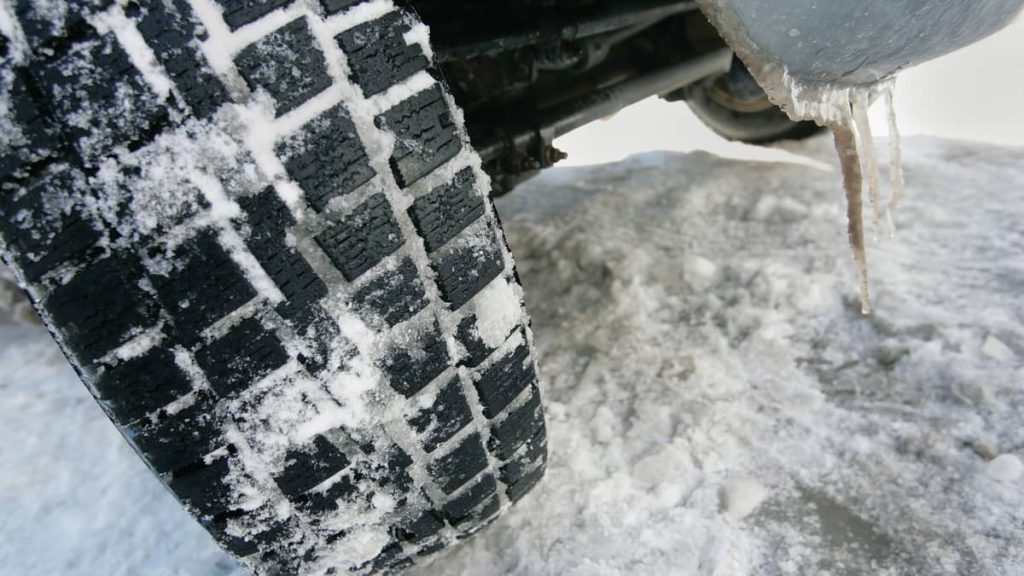
Sorry to remind you, but winter is fast approaching! It is therefore important to prepare your journeys well, but above all to put good winter tires on your car. On this occasion, here are some important things to consider when shopping for your tires.
When to change your winter tires in Quebec?
Earlier December 15 was set as the deadline to put winter tires on your vehicle It was brought forward to December 1.
How far do you travel every winter?
The question may seem trivial, but it should be the first question that pops into your head. If you live in a city, have access to public transportation, and your car is parked in your driveway all winter, spending hundreds of dollars on high-performance tires is unwise!
What type of road do you use on a daily basis?
If you live in a rural area and your job is in the suburbs, highways and minor roads are part of your daily life. Therefore you should expect to encounter roads partially cleared of snow. On the other hand, if you live in a city, you run the risk of taking the majority of roads that are completely cleared of snow and rarely have snow. This second criterion will definitely help you eliminate certain types of tires.
What is your budget?
The killer question! The budget allocated to your tires must reflect your usage. Unlike other products, automobile shoe prices are usually a guarantee of its quality. In other words, the more you spend, the more you get. So, if you travel 30,000 km a year and your car is your second office, it makes sense to invest in reliable tires. On the other hand, if you only use your car once a week for shopping, entry-level tires are fine!
Do you like your current tires?
As with many consumer products, you’ve undoubtedly formed an opinion regarding your purchase. So it depends on whether you are satisfied with your previous winter tires or not. If you like your old tires, why change models?
The best winter tires for 2023-2024
No studded tires?
Studded tires are allowed in Quebec between October 15 and May 1. They offer an undeniable advantage in terms of grip on the road surface. On snow and ice, they give you a better ride than an entry-level tire. If you live in Montreal and never go out, such a purchase will cost you a fortune and will not give you any satisfaction after the purchase.
Why are winter tires a must?
On its website, The Quebec Automobile Insurance Company (SAAQ) winter tires are fitted with rubber designed to grip the road even in cold weather.
“As soon as the mercury drops below 7°C or there is snow or ice on the road, the rubber of summer or all-season tires hardens and has less grip,” SAAQ explains.
For its part, the rubber of tires approved for winter is specially designed to meet flexibility standards down to a temperature of -40°C. This results in better grip on the road surface, be it snow, ice or tarmac.
Can I keep my winter tires in the summer?
While winter tires are mandatory during the cold season, no law prevents Quebec motorists from reinstalling summer tires in the spring.
However, it is strongly recommended not to keep your winter tires on all year round.
Firstly, the rubber of this type of tire is not designed to work at high temperatures and it wears out faster than a normal summer tire.
More importantly, braking distances on asphalt surfaces in hot weather are greater with winter tires than with summer tires.
In short, keeping your winter tires in the summer is not only an economically illogical choice, but also a dangerous one.
What is the difference between winter tires and “four season” tires?
Here are four big differences between tires approved for winter and those that aren’t.
Rubber Type:
Not all tires are created equal. And the type of rubber used while making them plays a big role in that.
Generally, a “four-season” tire loses its effectiveness when the mercury drops below 7°C.
When the weather is cold, the rubber loses its flexibility, which affects the vehicle’s handling and stopping distance.
A good winter tire, however, is made of rubber that maintains its flexibility even in freezing temperatures.
This winter quality is also the reason why it is not recommended to fit your vehicle with winter tires in summer.
When hot, the tread of winter tires wears down more quickly and extends the braking distance.
More depth for winter tires:
To perform better on icy surfaces, winter tires are equipped with a deep tread, which helps reduce snow build-up and provides the best possible traction.
Obviously, science has its limits, and a winter tire, even with deep tread, can’t do miracles. If you’re driving on a snow-covered road, it’s important to slow down and not overestimate the work a tire can accomplish!
Tread Patterns:
In addition to the increased depth, the tread of tires approved for winter is carved, so that snow and slush are expelled from the sides. This ensures that snow does not accumulate between the tire and the ground, which can cause loss of control of the vehicle.
biting:
It’s great to shed extra snow, but winter tires must bite through snow and ice for the car to function properly.
This is made possible by the notches on the surface of the tire tread. These more aggressive patterns distinguish winter tires from other tires that are not approved for cold seasons.





More Stories
Sportswear: Lolle acquires Louis Garneau Sports
REM is still innovative enough to foot the bill
A trip to the restaurant with no regrets for these customers